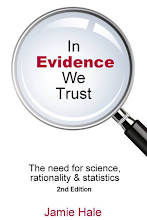Working Memory-
functional short-term memory. WM – temporary
storage and manipulation of information relevant to immediate goal(s). WM – a type of short-term memory
subserved in part by the prefrontal cortex, it integrates moment-to-moment perceptions
over a relatively short period and combines them with memories of past
experiences.
3 Component Model of Working Memory-
Baddeley & Hitch,1974 (Baddeley, 2000)
Phonological loop
(articulatory rehearsal loop)- stores verbal material
Visuo-spatial sketchpad-
stores visual materials
Central executive
– director of the working memory system, binds information from a number of
sources into coherent episodes
4 Component Model of Working Memory (Baddeley,
2000)
Fourth component added to the model of working
memory
Episodic buffer - provides a temporary interaction between the
phonological loop, the visuospatial
sketchpad and LTM.
The revised model differs
from the old by primarily focusing attention on the processes of integrating
information, rather than on the isolation of the subsystems.
Does mental
rehearsal promote memory?
Rehearsal promotes memory only if it’s
rehearsed in the right way.
2 Types of rehearsal
Maintenance –
focus on the items that one is trying to remember in a mechanical fashion while
paying little attention to meaning and how the items are related to items that
are already stored in memory – example: repeating
a definition over and over, word for word (rote learning)
Elaborative (relational)
– thinking about the meaning of the items that one is trying to remember, and
thinking about how they are related to items already in memory
Elaborative rehearsal is the right
way.
Why is Elaborative rehearsal the right way? It provides the stimulus required to form
numerous memory connections (synaptic connections). This means more retrieval paths- paths
that can guide thoughts toward the content to be remembered. Connections allow one memory to trigger
another, and then that memory to trigger another and so on. Similar to the domino effect until finally
the target is located. Generally, the
more retrieval paths that exist for a target (item to be remembered) the easier
it will be to recall.
What
is muscle memory?
The idea of muscle memory is a misnomer. Muscles do not remember. What is really meant
when one refers to muscle memory is implicit memory. Implicit memory (procedural,
unconscious) – the storage of information that does not require conscious
attention for recall- often in the form of habits, perceptual or motor
strategies, and associative and non-associative conditioning. Examples of implicit memory include the
memory utilized for riding a bike, or throwing a ball. IM has an automatic quality, it is recalled
through performance.
If you are interested in hosting an Exploring Memory Seminar you can contact
me at Jamie.hale1@gmail.com




